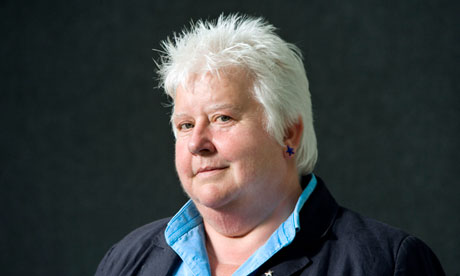
The peculiar ritual of the book signing – where authors surface into the public realm at a pre-announced time and venue, where the barrier of the page is briefly removed to allow writer/reader contact to become face-to-face – has plenty of potential for humiliation. Janice Galloway, for example, has written of someone who queued for over an hour to tell her that "he hated my stuff and … my fucking earrings as well". But the experience rarely gets as nasty as it did for Val McDermid at Sunderland University last December.
Disguised by a blond wig, trilby and glasses, Sandra Botham queued up after McDermid's talk, asked her to sign a copy of her 1994 non-fiction book about female PIs, A Suitable Job for a Woman, and dedicate it to "Michelin Man San", and then threw ink all over her. Botham had apparently held a grudge against McDermid for almost 20 years, having interpreted a passage in the book as a derogatory reference to her. She was convicted this week of common assault.
Another leading crime writer, Peter James, talked last year of a 10-year campaign by a stalker who appeared at his events around the UK. Between them, she sent lengthy emails "several times a day": one attached "a photograph of her Peter James shrine … flanked by candles, burning", while another (after he went blank when she turned up at a signing) was "a 10,000-word email beginning 'I've been your No 1 fan for years, I can't believe you don't remember my name'".
Other obsessives have confined themselves to emails or letters. Paul Lomax, who was convinced he and JK Rowling had met on a train before she wrote the Harry Potter books and had a special connection, was banned from contacting her in 2007 after bombarding her with letters, culminating in a death threat comparing her to the murdered playwright Joe Orton.
In the same year, Patricia Cornwell went to court to seek an injunction against her "cyberstalker", a writer called Leslie Sachs who had accused her online, inter alia, of plagiarism and antisemitism. More recently, James Lasdun devoted a book, Give Me Everything You Have, to being cyberstalked by someone he'd taught.
Writers have been the objects of stalking, one-off harassment or warped erotic pursuit since the beginnings of literary fame – Byron was stalked by his ex-lover Lady Caroline Lamb, Edward Bulwer-Lytton by his estranged wife Rosina – but these ordeals seem to be becoming more common, partly, perhaps, because authors are on show more often (continuously, if on Twitter), and partly because the internet gives disturbed readers another, potentially unmediated way of connecting with them.
At any rate, ever since Stephen King's Misery – in which a nurse who calls herself a novelist's "No 1 fan" keeps him prisoner at her house – authors have been increasingly drawn to stalking or related behaviour as a theme: benign in the case of the eponymous hero of Zadie Smith's The Autograph Man, but a creepy version of love in Ian McEwan's Enduring Love, Zoë Heller's Notes on a Scandal, Philip Roth's The Humbling and Edward Cullen, troubling hero of Stephenie Meyer's Twilight trilogy.
When journalists (such as Rowling's Rita Skeeter) or biographers (as in Roth's Exit Ghost) appear in recent fiction, they almost invariably resemble stalkers. And few examples of the psychological thriller lack a menacing pursuer or harasser, whether their aim is murder, sex, ruining a reputation or just causing fear: the legacy of one of the currently hot genre's pioneers, Patricia Highsmith, who, as Susannah Clapp has noted, herself briefly stalked a love-object before becoming the "balladeer of stalking" in novels such as Strangers on a Train.

